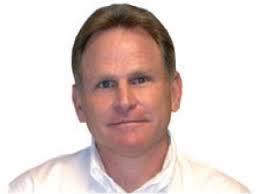 Mark Kleinsmith recently retired from Lubing Systems after a 43-year career in the U.S. and international poultry industries. In recognition of his extensive contributions and his experience, EGG-NEWS recently interviewed Mark for the benefit of his friends and subscribers.
Mark Kleinsmith recently retired from Lubing Systems after a 43-year career in the U.S. and international poultry industries. In recognition of his extensive contributions and his experience, EGG-NEWS recently interviewed Mark for the benefit of his friends and subscribers.
EGG-NEWS: Mark, please tell us of your early education and your motivation to enter the poultry industry.
Mark Kleinsmith: I was born in Detroit, Michigan and grew up in a family with a scientific orientation. My father and brother were both physicians and my mother a nurse. Accordingly I enrolled at Michigan State University in 1974 for a BS in agriculture. During my curriculum I was drawn to chickens as a career option. In my final year in 1978 I undertook an externship at Herbruck's Poultry Ranch in Saranac, MI., as part of the hours I required for graduation.
EGG-NEWS: You have had a number of key positions within the U.S. allied industry and have helped shape types of housing and equipment over the past four decades. Please share your career progression.
MK: My first position was with Aerovent, now Munters. I served for three years in a technical service position and learned a considerable amount about ventilation and management visiting customers throughout the U.S. This allowed me to educate them on the systems of housing, fans and controllers. In 1982, I was offered a sales position with Chore-Time Cage Systems, then a family enterprise. I started as a representative for the Midwest and was successful in growing revenue through sales to existing and new customers. This resulted in a series of promotions to the position of National Sales Manager with responsibilities for cage systems, Brock feed handling and storage and other Chore-Time product lines. In this position I traveled widely working with both relatively small independent farms and the emerging large integrations that were establishing multi-house complexes. During my fifteen years with Chore-Time, I traveled domestic and internationally grew sales by over thirtyfold for Cage Systems and helped place the brand in numerous nations that were adopting U.S. housing and equipment to achieve cost efficiency. In 1996, I left the company following a change in ownership.
EGG-NEWS: We know that you had a change in career orientation at this time. How did this influence your involvement with the industry?
MK: My association with E.J Fleming involved raising finance for acquisitions and expansion projects and assisting egg production companies by identifying and resolving structural and operational problems. This was an invaluable experience during which I was able to assist in saving some smaller operations and facilitating the growth of larger companies, creating jobs and increasing the ability of intermediate-sized farms to compete. During this period, there was a marked reduction in the number of egg producers. When I joined the industry in the late 1970's there were probably as many as 6,000 farm units producing eggs. This number declined sharply even before welfare and conversion from cages became an issue, mainly due to age and technical obsolescence of housing. This trend has continued and today approximately 65 companies produce 90 percent of eggs that are packed and distributed or broken for liquid.
EGG-NEWS: Your last appointment was with Lubing Systems extending to a nineteen-year run.
MK: In 2003, Lubing posted sales of $5 million. When I retired last year we exceeded five times that figure. Through close connection with cage and aviary manufactures and producers, Lubing established a position as the preferred drinker system for a range of alternative equipment options extending from high-rise cages in the early to mid-80's then to belt batteries and more recently to aviaries. Lubing is currently the standard for rod conveyors and belt conveyors. Improvements in design have allowed producers to expand existing operations and to achieve efficiency with minimal shell damage in existing and newly designed complexes.
EGG-NEWS: To what do you attribute your success and acceptance by the industry?
MK: Above all, honesty is the most important quality. There are many occasions on which I have advised customers on selection of equipment, farm layout and options. Some have not liked what I told them, but my opinions were based on the best available knowledge and what I considered was beneficial for the customer. Other important considerations include technical knowledge, flexibility allowing some give and take and a commitment to professionalism.
EGG-NEWS: The industry is undergoing a program of conversion from confined to alternative systems. How do you view progress?
MK: Conversion to alternative systems will require an immense investment of capital. Since our producers have traditionally been nickeled and dimed by the chains, most have not been able to set aside depreciation to allow for replacement and conversion and accordingly are having to request funding from financial institutions. Currently banks will only loan 65 percent of the value of a project. How do producers raise the remaining 35 percent? We are clearly not going to achieve complete conversion by 2025. Even if finances were available, delays in execution are a reality. The supply of steel is a restraint with up to a year for delivery to a large project. It is difficult to assemble competent and experienced work crews. A number of retail chains and QSRs are revisiting their 2020 commitments to cage-free production. When 2025 rolls around we will still have a considerable proportion of hens in cages producing for both the shell and liquid markets.
EGG-NEWS: Thank you Mark, we wish you well in your retirement and hope that you will still play a role in the industry.